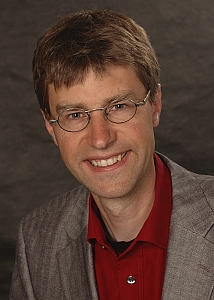Dr. Johannes Schiller
Research Unit Environment and Society
Department of Economics
Working Group Social-science Water Research
Helmholtz Centre
for Environmental Research − UFZ
Permoserstr. 15
04318 Leipzig, Germany
phone: +49 341 6025 1690
johannes.schiller@ufz.de

Research areas and focus of work
Ecological economics and environmental and resource economics, in particular
- Potentials and implementation strategies of “rewilding” as a new concept in nature and biodiversity conservation
- Economics of water resources and water services, integrated river basin management, economic aspects of German and European water law, economic instruments for the allocation of water services
- Research on sustainability, in particular concepts for preparing the knowledge base for sustainable policies
- Conception, organization and evaluation of problem-oriented science, transdisciplinarity
- Reflection and further development of basic analytical concepts of ecological economics - the concept of man, responsibility, concepts for describing production, especially joint production, and concepts for analyzing the long-term dynamics of ecological-economic systems
- Theory and practice of technology assessment, especially in the field of environmental topics
Current Project
REWILD_DE Sustaining Biodiversity and Creating Ecosystem Service Opportunities through Rewilding – Learning from the Oder Delta ("REWILD_DE Erhaltung von Biodiversität und Inwertsetzung von Ökosystemleistungen durch Rewilding – vom Oderdelta lernen", since 2020)
Further Projects
1998 - 2001
Dynamic analysis of environmental problems caused by joint production ("Dynamische Analyse von Umweltproblemen durch Kuppelproduktion", funded by VW-Stiftung)
2002 - 2006
Decision Support for Integrated River Basin Management − Conflict Assessment and Possible Solutions Using the Example of the River White Elster (funded by BMBF)
2002 - 2006
The concepts of joint production and responsibility in ecological economics
2004 - 2006
The challenge of programme research - conception, organization and evaluation of problem-oriented environmental research ("Herausforderung Programmforschung – Konzeption, Organisation und Evaluation problemorientierter Umweltforschung")
2007 - 2010
The concept of stocks as a tool for decision-making for sustainability policy ("Das Konzept der Bestände als Entscheidungshilfe für eine Politik der Nachhaltigkeit", funded by BMBF)
2010
- 2013
Responsibility for sustainability: the management of water resources in the EU ("Verantwortung für Nachhaltigkeit: Die Bewirtschaftung von Wasserressourcen in der EU", funded by BMBF)
2013 - 2018
Consortium partner at the Office of Technology Assessment at the German Bundestag
Professional career
1990 - 1997
1997 - 2002
Research assistant at the Chairs of Environmental Economics and Economic Theory II at Heidelberg University
2002
Doctorate in economics. Title of dissertation: “Environmental problem and time. Stocks as a conceptual basis for ecological economics”
since 2002
Researcher in the Department of Economics, Research Unit of Social Sciences at the Helmholtz Centre for Environmenal Research - UFZ in Leipzig
2004 - 2009
Member of the UFZ's Programme Integration Group (conception and organization of the UFZ's problem-oriented programme research)
2007 - 2009
Head of the BMBF research project “The concept of stocks as a tool for decision-making for sustainability policy" (funded by BMBF)
2009 - 2010
Teacher (mathematics and physics) on the Sail Training Ship STS Thor Heyerdahl as part of the school project Classroom under sail
2010
- 2013
Head of the research project "Responsibility for sustainability: the management of water resources in the EU" (funded by BMBF)
2013 - 2018
Head of the UFZ sub-project as a consortium partner in the operation of the Office of Technology Assessment at the German Bundestag
since 2020
Head of the BMBF funded research project REWILD_DE Sustaining Biodiversity and Creating Ecosystem Service Opportunities through Rewilding – Learning from the Oder Delta within the framework of BiodiWert II: “Research Initiative for the Conservation of Biodiversity” (FEdA), together with Prof. Dr. Bernd Hansjürgens
